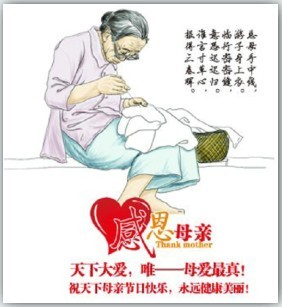神秘内容 Loading...
 (来源:英语杂志 http://www.EnglishCN.com) (来源:英语杂志 http://www.EnglishCN.com)
Niger is the worst country on earth in which to be a mother, according to a report by Save the Children. The charity's annual Mothers' Index uses statistics covering female and child health and nutrition, as well as prospects for women's education, economic prosperity and political participation in its assessment of 165 countries.
Niger's current food crisis bears much of the blame for its placing at the bottom of the list, just above Afghanistan, Yemen, Guinea-Bissau and Mali. The report also found high levels of maternal mortality, lack of access to contraception and poor levels of income relative to men's.
Afghanistan, which came last the previous two years, was credited for providing skilled assistance at more births and a reduction in female mortality rates, among other factors.
Hunger and deprivation are the chief factors keeping other developing nations, such as Eritrea, Chad, Sudan and South Sudan, near the bottom of the list. Of 73 developing nations on the table, which account for 95% of child deaths, the Save the Children report rates only four as "very good" for child nutrition. Of the bottom 10 nations, four have seen an increase in stunted growth in children caused by poor nutrition over the past 20 years.
The authors stress that income is not the only thing that matters: Vietnam's per capita income is 25% less than that of India, yet it has half the rates of stunting.
Norway is rated as the world's best place to be a mother, followed by Iceland, Sweden, New Zealand and Denmark. The UK is joint 10th with the Netherlands, three places up from 2011. The US is rated 25th, with the report pointing to maternal death rates 15 times higher than those in Greece and infant mortality four times greater than in Iceland. The US also scores the worst among developed nations for encouraging breastfeeding.
The report "shows clearly that this crisis of chronic malnutrition has devastating effects on both mothers and their children", said Brendan Cox, Save the Children's director of policy. He said: "We urgently need global leadership on malnutrition that results in key nutrition projects being rolled out for mothers and babies to ensure their health and survival."
Save the Children has highlighted the vast differences between women's experience in Niger and the UK, with those in the former expecting only four years of formal tuition and having a one in 16 chance of dying from a pregnancy-related cause, against almost one in 5,000 in the UK.
Childhood malnutrition is a vicious circle, the report notes, with women stunted from early deprivation going on to produce underweight babies who have not been adequately nourished in the womb, an effect magnified all the more if the mother remains poorly fed or overworked. The charity wants countries to break this pattern by focusing efforts on a child's first 1,000 days, starting from the beginning of pregnancy.
Save the Children argues that even supporting mothers to breastfeed could save a million children's lives a year.
国际救援组织“救助儿童会”日前公布2012年度世界“母亲待遇”排行榜,对全球165个国家的母亲待遇排名,以各自的发展程度分发达国家、发展中国家和不发达国家三组排序。总体来看,北欧国家挪威对母亲的待遇最好,中国位列发展中国家的14位。
该榜单由“救助儿童会”于1998年发起,榜单于每年母亲节前发布,衡量标准主要是由妇女的健康状况、受教育程度以及政治参与率构成。据最新出炉的榜单显示,母亲待遇最差的国家集中在非洲以及西亚、南亚各国。非洲南部,20%的女性被认为过瘦,而在南亚该比率甚至高达35%。陷入食品危机的西非国家尼日尔不幸成为最不善待母亲的国家。其次为阿富汗、也门、几内亚比绍以及马里。
挪威母亲则再令全球母亲艳羡,蝉联榜首。其次为冰岛、瑞典、新西兰以及丹麦。英国与荷兰并列第十,美国排名第25位。 |

